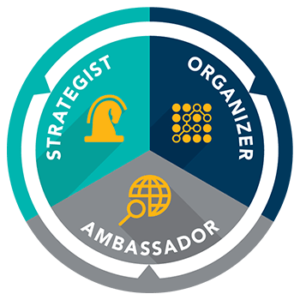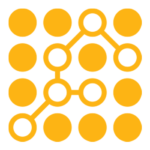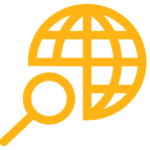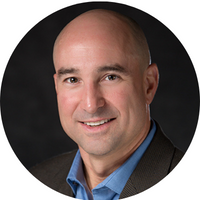 Times have never been more challenging—or more exciting—for Tax. As C-suites work to refine their company strategies, they increasingly rely on tax departments for input crucial to high-risk decisions. With the power to leverage its data in so many informative ways, it makes perfect sense for Tax to advise on company transactions and risk-management goals.
Times have never been more challenging—or more exciting—for Tax. As C-suites work to refine their company strategies, they increasingly rely on tax departments for input crucial to high-risk decisions. With the power to leverage its data in so many informative ways, it makes perfect sense for Tax to advise on company transactions and risk-management goals.
Tax technology is the best (and arguably only) way for Tax to assume these new functions. For starters, technology allows Tax to collaborate with Finance, Accounting, and Legal to uncover tax savings and credits, analyze the supply chain, generate cash, and monitor transactions from M&A activities. Further, Tax can implement changes that cut cost and lower risk.
Learn how technology helps the tax department meet today’s demands by assisting with three new Tax roles: the Strategist, Organizer, and Ambassador.
 Tax as the Strategist – providing insights to achieve company goals
Tax as the Strategist – providing insights to achieve company goals
Now more than ever, Tax and Finance are working together to align tax activities with the organization’s short- and long-term objectives. By analyzing and visualizing tax data, Tax can quickly respond with data-driven insights to inform business decisions. For example, technology allows tax teams to model trends, identify cash tax savings, and monitor changes impacting the effective tax rate in real time.
By accelerating and tracking transactions and output, tax technology supports smart tax planning and risk abatement. As companies round out their portfolios to leverage favorable tax law changes, Tax will be asked to model and review potential outcomes of M&A transactions, while keeping an eye on changing regulations. Access to current entity data prevents misinformation and unnecessary time spent running tax outcomes based on organizational changes.
Technology further supports the business by building repeatable processes for downstream tax functions and creating an agile environment receptive to both growth and unforeseen challenges arising from ongoing change.
 Tax as the Organizer – delivering reliable data to the enterprise
Tax as the Organizer – delivering reliable data to the enterprise
Software supports the tax department’s increased participation in planning by providing tools that create order and stability in an era of volatility. Companies are recognizing a tax database stores information essential to many departments. A single source of truth allows multiple stakeholders to retrieve and utilize seamlessly calculated, accurate data. It becomes easier to manage risk and eliminate redundancy while preserving security by using one administration.
Technology makes entity data extremely consumable throughout the organization. The ability for multiple business departments to use structured, common tax data provides cross-functional alignment. Legal, Finance, and HR use the same consistent and trusted information to unite on company goals.
By automating the close cycle and income tax compliance for international, federal, and state returns in a single system, Tax maintains consistent data and reporting that reduce the need for third-party spending. Plus, access to data-driven reviews helps the entire business plan for the future as one.
 Tax as the Ambassador – coordinating geographically dispersed business units and cross-functional activities
Tax as the Ambassador – coordinating geographically dispersed business units and cross-functional activities
While Tax’s ultimate goal used to be delivering tax returns, now it’s about collaboration among departments based on frequent examinations of consistent data—a single version of truth used throughout the organization.
Tax is able to manage risk with data governance and avoid duplication of effort. Take international compliance, for example. You can make calculation changes and further refine federal taxable income without needing to wait. As you work on other aspects of these calculations, they automatically update as you revise underlying data sources that feed forms and calculations. Once you finish the calculations, FDII, GILTI, and the foreign tax credit not only feed Forms 8992, 8993, and 1118, but also post inclusion results back to Form 1120.
A software system standardizes automation, furnishes digital assets ready to use throughout the enterprise, and centralizes multiple functions that reduce downstream costs.
- A standardized compliance process globally integrates itself with financial functions
- Ad hoc reporting brings together tables and massive stores of data from multiple departments, providing nicely formatted and easily consumable deliverables
- Output of system calculations can be reused to determine finance or legal impact to help understand best ways to execute projects, find cost savings and credits, and recover revenue and cash savings
- Legal and Finance gain efficiencies with automated updates to ownership, equity, and organizational chart information, along with refreshable connections to a single source of truth
- Tax technology preserves data and statutory accounting requirements during improvements made to the process
Advance Your Tax Functions to Match the Times
Tax technology allows the tax department to raise its profile in the business. Tax professionals have the opportunity to become value-drivers in their organizations by leveraging data and processes at a level that effectively enlightens and supports corporate initiatives. The C-Suite and fellow departments benefit from their newfound ability to use tax data to inform and optimize decisions.
By enhancing the tax function, technology helps Tax prove its worth and earn its seat at the table.
CSC Corptax® technology implementations are tailored to the requirements and budgets of tax departments large and small. Let’s chat—there’s absolutely no obligation. Call us at 800.966.1639 or email info@corptax.com.
Learn how to identify process shortfalls and build sustainable software solutions. Watch the webinar on demand: "Bridge Your Gaps with Game-Changing Tax Technology."
about this topicAbout Brian Billet
A CSC Corptax® Senior Director, Brian Billett has more than 25 years of experience in the tax industry and more than 10 years at Corptax. He implements tax solutions with an emphasis on technology, tax automation, and data integration to help clients improve their tax strategy and streamline the tax lifecycle.
About Kathleen Harrott
Kathleen Harrott has been with CSC Corptax® for more than a decade. Prior to Corptax, she spent more than 20 years in tax accounting and tax technology roles. As a Corptax Account Manager, Kathleen is the main point of contact for her clients, serving as an expert resource for information about new and existing Corptax products and services. She strives to develop long-term relationships with her clients and enjoys helping them stay current with the latest in tax automation.
